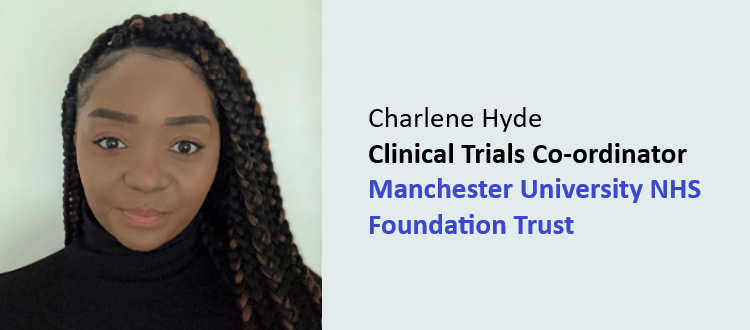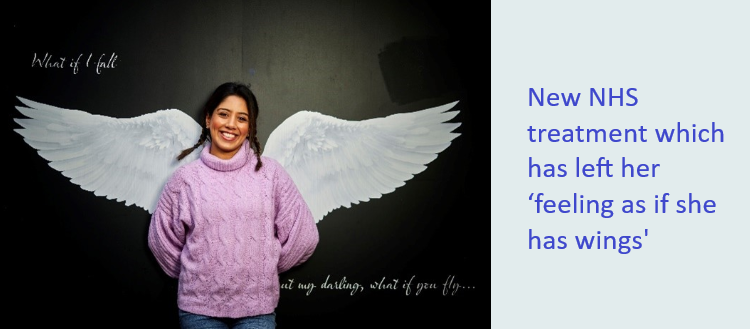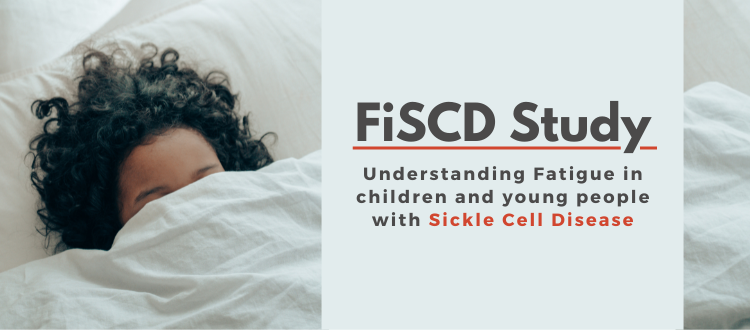This section of the HCC website focuses on research in to haemoglobinopathies. Research produces valuable knowledge for understanding human diseases/conditions, preventing, and treating illness and comorbidities, and promoting health.
Please note many of the clinical trials listed below will be located at Manchester University NHS Foundation Trust (MFT), as it is one of the key centres outside of London. Other trials, within the HCC, will have links to external websites (where the trial is being conducted).
Click on the links below or scroll down to articles:
Clinical trials and other research projects for sickle cell and thalassaemia patients
Taking part in research at MFT
Health and care research can only improve and save lives with the help of people like you. Clinical trials are carefully designed and conducted to minimise the risks and maximise the benefits to all who take part.
Taking part in research is a positive experience and entirely voluntary. Different studies and trials look for different people to take part, such as because of their age or aspects of the condition they are experiencing. Some explore new treatments, others seek to better understand how the conditions work. All health and social care research has to go through very strict ethical and regulatory checks before it can go ahead and participants to our research are very closely monitored throughout.
At MFT we have a number of research projects taking place to better understand and improve treatments for sickle cell and thalassaemia. We want to give people in Greater Manchester and beyond the opportunity to be part of our research.
What is Sickle Cell and Thalassaemia?
Approximately 15,000 people in the UK have sickle cell disease, an inherited condition, mainly affecting people of African and Caribbean background. People with this condition produce unusually shaped red blood cells that can cause problems because they do not live as long as healthy blood cells and can block blood vessels.
Thalassaemia is the name for a group of inherited conditions that affect a substance in the blood called haemoglobin. People with thalassaemia produce either no or too little haemoglobin, which is used by red blood cells to carry oxygen around the body. This can make them very anaemic (tired, short of breath and pale). This condition mainly affects people of Mediterranean, south Asian, southeast Asian and Middle Eastern origin.
Find out more about sickle cell disease and thalassaemia on the NHS England website.
Get in touch to find out more

If you would like more information or you are thinking of taking part in research in these areas, please contact Charlene Hyde, Clinical Trials Co-ordinator at MFT. Whether or not you take part in a study is always entirely up to you, but Charlene will be happy to discuss our current studies with you.
Email: charlene.hyde@mft.nhs.uk
Telephone: 0161 276 6603
Our recent and ongoing projects at MFT
(Updated January 2024)
Recruiting
The ASCENT-1 Study
Study Outline
This is a Phase 2, randomised, parallel group, multiple-dose study which will be assessing the safety and efficacy of a new medication known as NDec (Decitabine and Tetrahydrouridine combination) and if it can improve the Haemoglobin levels compared to the medication Hydroxyurea or placebo when used for the treatment of people with Sickle Cell Disease.
Patients will be participating in the study for a total of 56 weeks which includes a Screening phase, 2 treatment phases (main and extension) and a follow-up over a total of 13 visits. Both patients who are currently treated with Hydroxyurea and Non-Hydroxyurea participants will be included in the study.
Patient enrolled on the study will receive either the study treatment, placebo or an open labelled Hydroxyurea.
SCDT Study (BRIDGE Study)
Study Outline
The NIHR BioResource Rare Diseases Project is looking at how genes influence disease. By gaining more information on the genes involved in disease and by understanding the differences in their function we hope to be able to begin to cure or reduce the effect of the disease.
By looking more closely at how diseases such as Sickle Cell and Thalassemia developz, it may be possible to identify better treatments to help prevent them from happening in the future.
As this is a registry study, volunteers will be asked to donate a small blood sample and are asked if they would be happy to contacted in the future for any medical research studies which based on the analysis of their sample and information they have provided to the team.
RISE UP – Phase 3 Study
Study Outline
The RISE UP study is a Phase 2 & Phase 3 double-blinded, randomised study which is to determining the effect of a new medication known as Mitapivat in participants with Sickle Cell Disease Vs Placebo.
The study is divided into 3 parts, Phase 2 (which is now completed), Phase 3 (now recruiting) and Open Label Extension.
For participants enrolled onto the Phase 3 study, they will be followed up for a total of 52 weeks including an up to 4 week screening period and double blind – treatment period over 10 visits and will be offered to continue on the Open Label phase of the study where they will receive the study medication Mitapivat.
The molecular Investigation of unexplained anaemias and related congenital anaemias
The purpose of the study is to understand the genetic causes behind inherited anaemias. These are rare inherited conditions which manifest as anaemia and can present in childhood or adulthood. Some causes are known, while others are waiting to be discovered. We want to find out what genes are involved in these diseases. This will help us to diagnose patients in the future better and more quickly, and may help us discover new treatments for patients will all sorts of different anaemias, not only the rare ones which we are studying. In some cases, we will be looking for completely new genes that cause anaemia, and which have never been discovered before.
Participants who have agreed to participate in the study will be asked to provide a small blood sample for analysis.
HEM 201 (Gladiolus Study) – Cohort B & C closed to recruitment, Cohort A currently paused until June 2024
Study Outline
The Gladiolus Study is a Phase 2 Open-Label Study to Evaluate Safety and Clinical Activity of the medication FT-4202 or Etavopivat in Patients with Thalassemia and Sickle Cell Disease.
The study is split into 3 study cohorts
Cohort A: Patients with Sickle Cell Disease receiving RBC transfusion therapy
Cohort B: Patients with Thalassemia receiving RBC transfusion therapy
Cohort C: Patients with Thalassemia who are not receiving RBC transfusion therapy
The study aims to test the effect of Etavopivat on Red Blood Cells:
- Cohorts A and B: measuring a reduction in RBC transfusions
- Cohort C: measuring the amount of haemoglobin in the blood
Each participant will be enrolled into a 48 week treatment period with a screening period lasting up to 8 weeks and an End of Treatment period of 28 days.
There may also be the potential of an Open label extension.
Future Research
REDRESS Study
The REDRESS Study is a clinical trial researching the use of stem cell transplant (aka bone marrow transplant) to treat patients with Severe Sickle Cell Disease.
This study is being led by a group of Researchers based at Kings College London NHS Foundation Trust, University College London Hospitals NHS Foundation Trust and Guys & St Thomas’ NHS Foundation Trust.
We plan to commence recruitment in Early 2024.
Living with Sickle Cell Disease
Young Migrants, Chronic illness and disability: The case of Children and young people with Sickle Cell Disease who Migrate to England
This study is sponsored by the University of Nottingham and led by the Chief Investigator – Dr Brenda Poku, Research Fellow based at the University of Nottingham.
This study hopes to better understand the health and care experiences of children/young people (CYP) living with Sickle Cell Disease who migrate to the UK and identify ways of enhancing, improving and/or integrating health services to support their transition and integration post-migration.
This is a qualitative study and will involve individual interviews and focus group discussion.
We plan to commence recruitment to this study in early 2024.
We also have a number of Non-Interventional studies also in the pipeline.
Paediatric clinical trials:
- A phase 2, Multicenter, Open-Label Study to Assess Appropriate Dosing and to Evaluate Safety of Crizanlizumab, with or without Hydroxyurea/Hydroxycarbamide, in Sequential,Descending Age Groups of Pediatric Sickle Cell Disease Patients with Vaso-Occlusive Crisis (SOLACE)
- A Single Arm, Open Label, Phase 1/2 Study to Evaluate the Pharmacokinetics and Safety of Etavopivat in Pediatric Patients with Sickle Cell Disease
- Understanding fatigue experiences of children and young people with sickle cell disease to guide the co-development of a fatigue self-management intervention (FiSCD)
Studies in Follow-up & Completed Studies
The ENERGIZE Study
ENERGIZE is a Phase 3, double blind, randomised study with the purpose of assessing whether Mitapivat helps to improve haemoglobin levels in Non-transfusion-dependent Alpha- or Beta-thalassemia patients and whether it is safe.
Participants enrolled onto this study received either a dose of Mitapivat or placebo for a period of 24 weeks in the Double blind period and after this had the option to continue to receive Mitapivat for an additional 5 years as part of the Open Label Extension.
The IMR-BTL-201 Study & The IMR-SCD-301 Study
Phase 2 & 2b studies evaluating a medication known as IMR-687 to treat participants with β-Thalassemia as well as Sickle Cell Disease.
The purpose of these studies was to evaluate the how well IMR-687 is tolerated by both groups of patients, how safe it is and also to establish what the medication does to red blood cells and other biomarkers associated with these diseases.
You can find more research trials available in other locations through this link: Search Results | Beta ClinicalTrials.gov
News stories

A Mancunian woman revives her dream to visit the North Pole after receiving new NHS treatment for Sickle Cell.
In May 2022, Gloria started a new treatment at the Manchester Royal Infirmary that has significantly improved her quality of life and allowed her to revive her long-cherished dream. She said: “I’m one of those people who’s always open to trying new things to help myself and others it may benefit, like my brother, so I was excited to get started. I was just like – let’s do it! I didn’t even think twice.”
First in Europe to recruit patient to Sickle Cell Disease study
The adult non-malignant haematology research team at Manchester Royal Infirmary recruited the first patient in Europe to a study researching the effect of GBT440, in increasing red blood cells and reducing the severity of symptoms of sickle cell disease.

A Manchester woman, whose sickle cell condition was so painful she once thought it might end her life – has told of a new revolutionary NHS treatment which has left her ‘feeling as if she has wings.
Sanah Shaikh is one of the first patients in the UK to receive a Crizanlizumab. Sanah who is from Indian heritage, also hopes to help dispel a widespread myth about sickle cell – that it only affects people from Black or Afro-Caribbean backgrounds.
Useful links
Research and Innovation at MFT website
Manchester University NHS Foundation Trust website
Follow us on social media:
- Twitter: @MFT_Research
- Facebook: MFT Research and Innovation
- LinkedIn: @MFT Research and Innovation

Fatigue in Sickle Cell Disease Study funded by the National Institute for Health Research
This study (report in link below) looked at understanding fatigue in children and young people with sickle cell (SCD). The research team plan to use the findings to develop and evaluate a fatigue self-management programme. This will be done in collaboration with children/young people with SCD, adults with SCD, parents and care provider.
The FiSCD Study _Final Short Report
Study carried out by Dr Brenda Poku (University of Nottingham), Professor Susan Kirk (University of Manchester), Professor Karl Atkin (University of York), Dr John Grainger (Manchester NHS Foundation Trust) and Iyamide Thomas (Sickle Cell Society).
 In this section
In this section